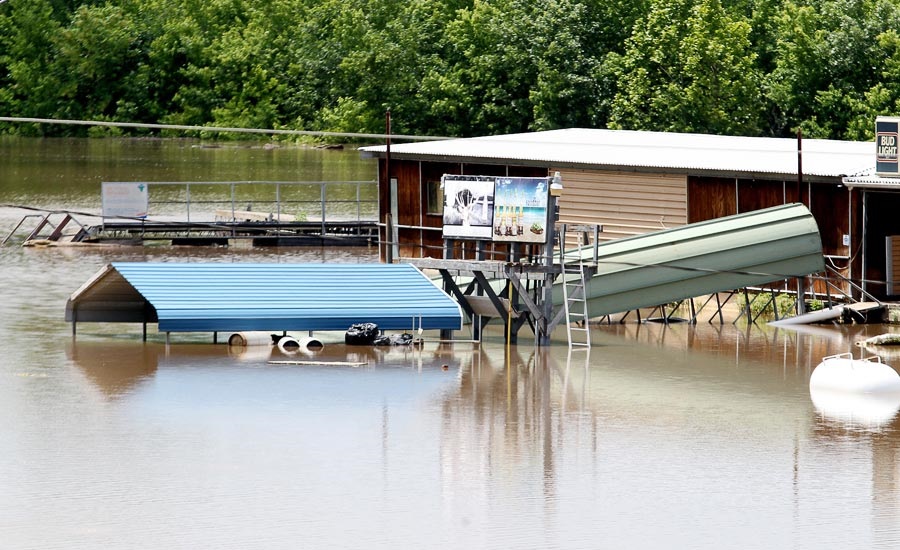After three months of being submerged in flood waters, some bridges and roads are finally passable in the tiny island town of Kaskaskia, Ill., on the Mississippi River. But local officials still don't have a good idea of how much damage has been done.
As record rain fell this spring, Illinois' first capital was cut off from its neighbors in Missouri and the rest of Illinois by up to 45 ft. of water It was only in the first week of July when the roughly three dozen residents of Kaskasia, which has no stores or schools, could cross the river in their vehicles. All of Kaskaskia's bridges were underwater from April until early July and heavy rains destroyed the crops grown on the fertile island ground.
"The tops of our bridges look good," says Derek Klein, a commissioner in the Kaskaskia drainage and levee district. "The water has gotten down to 35.5 ft, which is better than where we were but it really needs to get down below 30 ft for us to be able to get a good look. We'll see what happens when it gets down there."
Klein says it would be nearly impossible to add more height to the levees that surround Kaskaskia because fill material is not readily available. Protections put in place after 1993 flooding submerged the whole island were effective this year in keeping homes and historic sites dry.
"We actually did really well at holding the water down," Klein says. "We got more rain this time, over a longer period, than in '93, but our levees held, our pumps worked, we added some berms and reinforced some areas that were a problem."
Klein said markings on the island's pumps showed the height of the water this year was lower than that of 1993, which he attributes to the new protections. The Illinois State Climatologist Office says parts of Southern Illinois have received 200 to 300% of what it considers normal rainfall this year.
Kaskaskia has been separated from the rest of the state since the Mississippi meandered around it in the 1880s. The Liberty Bell of the West, donated by Louis XV in 1741, is still at a historic site on Kaskaskia even after the capital moved to Vandalia and then Springfield.
Its population has steadily declined. The 2010 census counted 14 residents in the farming community. Illinois Governor J.B. Pritzker (D) has declared a state of emergency for 36 counties and Randolph, of which Kaskaskia is a part, is among them. Klein says the levee and drainage district has yet to receive any relief funds from federal or state agencies. He is planning to attend a flood relief meeting next week.
The Illinois Constitution of 1870 authorized the Illinois General Assembly, the state's bicameral legislature, to pass laws giving landowners drainage rights. Drainage and levee districts are local bodies formed for the purpose of draining, ditching, and improving land for agricultural and sanitary purposes. They are authorized to build and maintain drains and levees, to sue all necessary private land within their corporate bodies for that purpose, and to tax land within their boundaries as necessary.





